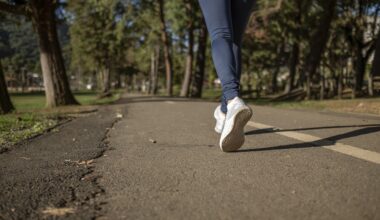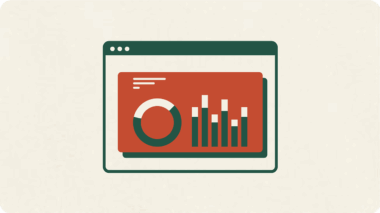Assessing the Impact of Sleep Patterns on Athletic Performance with Data
In recent years, sports science has increasingly focused on understanding how various factors impact athletic performance. Among these, sleep patterns have emerged as a critical area of investigation. Athletes often lead demanding lives, requiring them to balance training, competition, and recovery, all while maintaining a rigorous schedule. Numerous studies have suggested that an athlete’s sleep quality and duration can significantly affect their performance outcomes. Poor sleep can lead to fatigue, decreased reaction times, and an overall decline in physical and cognitive capabilities. Moreover, elite athletes are continually looking for ways to enhance their performance, making this research vital. By analyzing data on sleep habits in relation to training outputs and competition results, sports scientists can identify trends and correlations that support sleep as a performance optimizer. As the sports analytics field continues to grow, harnessing the power of data to highlight the importance of sleep will aid coaches and athletes in developing tailored strategies. Ultimately, this could improve overall performance, extend careers, and enhance the well-being of athletes at all levels.
Understanding Sleep Quality and Its Role
To understand the intricate connection between sleep and performance, it is essential to define what constitutes sleep quality. Quality refers to factors like uninterrupted sleep cycles, the absence of sleep disorders, and the duration of restorative sleep. Sleep research has established that athletes require a longer duration of sleep to recover from intense training and competitive events. Studies show that athletes benefit from approximately 7-9 hours of sleep nightly. However, achieving this ideal often presents challenges. Travel schedules, training commitments, and personal stress can disrupt sleep patterns and degrade performance. Analyzing the data from both subjective assessments, like questionnaires, and objective measurements, such as sleep trackers, provides coaches with valuable insights. These insights can lead to establishing evening routines or sleep hygiene practices. By actively monitoring sleep data, athletes and coaches can make informed decisions regarding training loads, travel arrangements, and health practices. Through this comprehensive understanding of sleep, strategies can be implemented to foster better recovery and prepare the athlete for optimal performance, ultimately translating data into actionable insights that enhance competitive edges.
In addition to quality and duration, the timing of sleep also plays a role in athletic performance. Circadian rhythms dictate when an individual’s sleep-wake cycle occurs, influencing energy levels throughout the day. Athletes often face unique challenges regarding timing, especially when participating in competitions requiring travel across different time zones. The disruption in circadian rhythms can lead to jet lag, which adversely affects performance levels. Understanding this phenomenon is crucial for athletes preparing for events in unfamiliar environments. Data analytics can help athletes and coaches forecast potential disruptions and adjust training schedules accordingly. By analyzing the body’s responses to various sleep timing scenarios, the right strategies can be devised. Techniques such as gradual exposure to the new time zone or preemptive rest before traveling can alleviate the impact of disrupted sleep patterns. Moreover, strategic napping can provide short bursts of recovery to optimize alertness during critical phases of competition. Ultimately, negotiating the challenges of sleep timing while analyzing relevant data can pave the way for improved athlete performance and minimize adverse effects on overall fitness.
Another consideration in this research realm is the psychological aspect of sleep and performance. Mental well-being significantly contributes to sleep quality, influencing an athlete’s ability to train effectively. Stress, anxiety, and pressure to perform can all hinder the ability to achieve restorative sleep. Athletes regularly face these challenges, which highlights the importance of incorporating mental health support into sports science disciplines. Utilizing data analytics allows coaches and sports psychologists to identify mental barriers that may be affecting an athlete’s recovery. By correlating sleep data with psychological assessments, it is possible to establish a comprehensive picture of the factors at play. Practices such as mindfulness, relaxation techniques, and stress management programs can also be introduced, promoting better sleep hygiene. Engaging the mind as much as the body in this pursuit could facilitate improved sleep patterns. This holistic approach to sleep management can create an environment where athletes can thrive, leading to better training outcomes and enhanced performance during competitions, thus demonstrating the interconnectedness of mental health and athletic success.
Implementing Changes Based on Research Findings
Once a comprehensive understanding of sleep’s role in athletic performance is achieved, the task of implementing data-driven changes arises. Coaches and athletes can work collaboratively to adjust training programs that account for sleep variations. Integrating recovery days into training regimens can allow for adjustments to be made based on an athlete’s sleep quality. These alterations ensure that athletes are not pushed beyond their limits, avoiding the onset of overtraining syndrome. In addition to modifying training schedules, strategies can be integrated to foster an optimal sleep environment. Creating a conducive sleep environment—including factors like temperature, lighting, noise levels, and comfort—can help improve the natural sleep cycle. Ongoing education for athletes surrounding the importance of sleep can also be instrumental. Emphasizing the need for consistent sleep routines, discussing the impact of late-night technology use, and promoting relaxation techniques are all crucial elements. Furthermore, integrating technology such as sleep trackers allows for more precise monitoring of sleep data, helping athletes and coaches draw meaningful conclusions from their observations. The collaboration between data analysis and practical applications underscores the importance of sleep in athletic performance.
Looking towards the future, as technology advances, so too will the capabilities of sports analytics regarding sleep and performance. Innovations such as artificial intelligence and wearable technology are already starting to play a major role in performance optimization. These tools can collect and analyze massive amounts of data regarding sleep metrics effortlessly, providing real-time feedback. With this data, athletes can make timely adjustments to training plans, sleep schedules, and recovery techniques. Predictive analytics can also forecast potential issues before they arise, allowing for timely interventions designed to avert declining performance. However, it is crucial to ensure that athletes do not become overly reliant on technology; a balance must be maintained. Acknowledging the value of personal feelings, experiences, and subjective measures should augment data-driven insights. Continuous research that combines the pragmatic aspects of sleep management with data-driven analytics will empower athletes to enhance their performance. The potential for innovations in this field represents an exciting trajectory for future sports science, indicating a paradigm shift in how athletes approach recovery and performance optimization.
Conclusion: A Data-Driven Approach to Sleep Optimization
In conclusion, the intersection of sleep patterns and athletic performance is ripe for exploration within the context of sports science and analytics. With growing evidence backing the notion that quality sleep enhances performance while poor sleep detracts from it, athletes and coaches alike must recognize its significance. Implementing data-driven strategies to assess sleep can lead to better recovery, improved training gains, and enhanced competitive readiness. As sports science increasingly integrates nuanced approaches towards mental health and well-being, athletes are poised to gain valuable insights. By prioritizing sleep as a fundamental aspect of performance, we can promote a holistic understanding of what it takes to succeed in sports. Moreover, fostering collaboration among coaches, sport scientists, and athletes will generate collective progress toward achieving a sustainable balance between performance demands and recovery needs. As we navigate this ever-evolving field, embracing the data can unlock a wealth of opportunities, allowing athletes to reach their maximum potential while nurturing their overall health. This paradigm shift toward recognizing the value of sleep underscores a holistic approach to athletic excellence and performance optimization.
The exploration of sleep patterns leads to more refined metrics and methodologies in sports analytics. The development of tailored sleep programs explicitly designed for athletes, guided by empirical evidence, will revolutionize the approach to athletic training and performance. Identifying and adapting sleep strategies specific to individual needs, preferences, and daily routines will foster better long-term outcomes. The evolution of sleep science has only just begun and holds more potential for future innovations. Athletes who proactively embrace the insights drawn from sleep analysis will have the advantage over those who overlook it. The upcoming wave of research and technology dedicated to sleep optimization signifies a critical turning point in sports science. Those invested in athletic excellence will pursue every possible avenue, and understanding sleep through analytical insights will undoubtedly become integral to enhanced performance. As this area of study develops, it will not only assist athletes but also contribute to the broader understanding of human performance and recovery processes. We stand on the cusp of utilizing the full spectrum of data to redefine athletic performance benchmarks, ensuring that tomorrow’s athletes utilize sleep as a powerful tool for peak performance.





